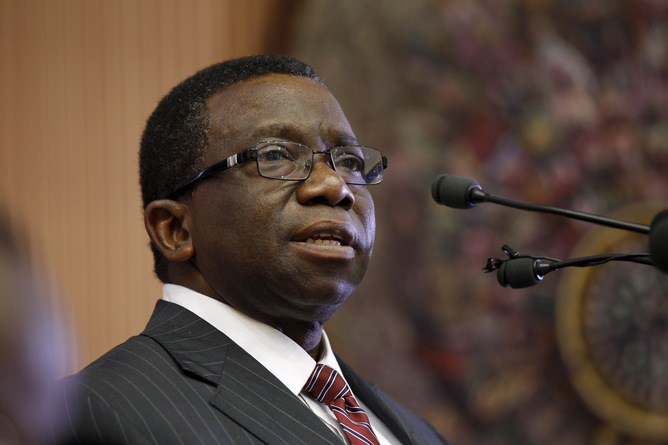There are 302,096 unreported cases of Tuberculosis (TB) cases in the country, the Minister of Health, Prof. Isaac Adewole has said.
TB remains endemic in different parts of the world, leading to annual deaths of nearly one-and-a-half million people, mostly in developing countries. Over ten million new TB cases were estimated to have occurred globally in 2016.
According to the 2017 Global TB Report,Nigeria is among the 14 high burden countries for TB, TB/HIV and MDR-TB. The country is also ranked 7th among the 30 high TB burden countries and 2nd in Africa. Nigeria is among the 10 countries that account for 64 percent of the global gap in TB case finding. India, Indonesia and Nigeria account for almost half of the total gap.
The minister said, “In 2017, the country notified only 109,904 out of the estimated 407,000 – all forms of TB cases (with treatment coverage of 25.8 per cent), leaving a gap of 302,096 comprising undetected or detected but not notified cases especially in non-DOTS sites. In the same year, the proportion of Childhood TB was seven per cent of all forms of TB cases compared to 10 per cent recommended by the World Health Organisation (WHO). In addition, a total of 1783 DR-TB cases were notified out of the estimated 5200 DR-TB cases.”
He revealed that the country’s major drawback in the fight to eliminate TB, is low case finding for both adult and children as there are a lot of missing TB cases that were either not diagnosed or diagnosed but not reported.
He noted that the TB burden is further compounded by the menace of drug resistance TB (DR-TB) and the HIV/AIDS pandemic.
Adewole however noted that the country is making progress in the fight to eliminate the disease despite the shortcomings.
He said, “May I inform you that we are making progress; Nigeria currently has 6,753 DOTS centres compared to 3931 in 2010. The total number of microscopy centres has risen from 1,148 in 2010 to 2,650 in 2017. GeneXpert machines installed in the country have increased from 32 in 2012 to 390 in 2017. Treatment centres for patients with DR-TB haveexpanded from 10 in 2013 to 27 in 2017. The number of TB reference laboratories has also increased from nine in 2013 to 10 in 2018. Over 90 percent of the TB patients notified in 2016 have documented HIV test results compared to 79 percent in 2010.”
The ministry he said has gone ahead to develop a robust national strategy to fight the disease.
“In our response to the burden of TB, the Federal Ministry of Health developed a robust National Strategic plan (NSP) for TB (2015 – 2020) as well as a framework to support the declaration of 2017 as a year of accelerating TB case finding and treatment in Nigeria. The implementation of the NSP for TB (2015 – 2020) though not without its limitations has brought noticeable improvements in TB control activities.
“To accelerate TB case finding, the country has now moved from passive to active case-finding in key affected populations, including PLHIV children, urban slum dwellers, prisoners, migrants, internally displaced people and facility-based health care workers, to target those most at risk for TB. Over 11,500 TB cases were detected through active house to house case search in 2017.”




